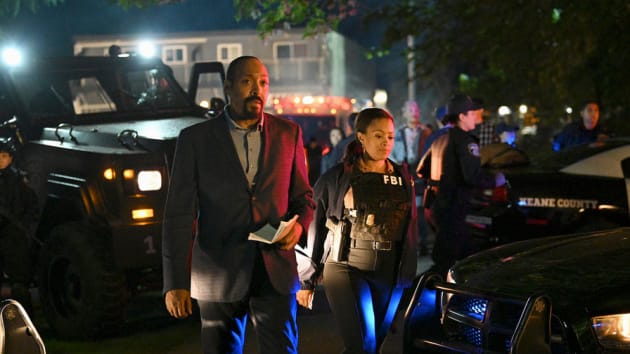Perennially, there are new shows based on idiosyncratic characters. For whatever reason, the characters are usually quite eccentric, and a narrative is built around them using a particular idea as the central plot point.
This format has been central to many shows, and the trick is to write compelling characters, and the more ambiguous they are, the better.
The Irrational Season 1 Episode 1 introduced Dr. Alec Mercer, a behavioral science professor who dabbles in crime fighting in his free time and not as a vigilante.
The cold open went straight to the point, ensuring we got the idea behind the show.
People are irrational. But predictably so. They’re more afraid of flying than driving, and the fact is, driving is much more dangerous. We know we should eat healthy food, but then we give in to temptation. Buy things we will never, ever use. We assume people are making rational decisions, weighing the pros and cons. For most of the time, we’re not. Instead, we rely on instincts, which are almost always wrong. Sometimes, dangerously wrong. One error in judgment leads to another.
Mercer
Dr. Mercer’s narration was accompanied by various montages of people doing some things that would appear rational, but if investigated further, they’re far from it.
There was seriousness in Dr. Mercer’s voice, but there were comedic undertones in the montages, which did some disservice to the show because it made it unclear what precisely the takeaway was supposed to be.
Next, we saw Dr. Mercer in the field as he tried to de-escalate a hostage situation involving a child.
Thankfully, there wasn’t anything comedic in the situation, and it allowed us to experience the full prowess of Dr. Mercer as he tore down the bad guy by showing him how irrational his demands were.
Jesse L. Martin did a great job with the character. Given what he had been stuck with on The CW during his stint as Iris’ dad on The Flash, it was great to see him widen the scope of his acting. The limitations The Flash had given him were absent.
The pilot episode was an introductory chapter into the story, and as such, it introduced the other characters in Dr. Mercer’s immediate environment.
Thus far, nothing significant about the writing had stood out.
However, Marisa’s introduction felt a bit off. It is always odd when a character references some important information from the past that the audience is not quite aware of and does so in a very unnatural way.
Marisa: That ability you have to completely divorce emotion from reason is both why I married you and…
Mercer: … why you’re longer married to me.
It was a considerable leap connecting Dr. Mercer’s “divorce” from the situation to their former marriage.
If the writers wanted us to know that Marisa and Mercer had history, there was a better way to go about it.
That revelation was also significant, and it felt like it came too early. That kind of revelation is a great cliffhanger for an episode.
Mercer’s younger sister was also introduced, and that introduction seemed off, too.
You know, you can get your own place, but you chose to move in with your little sister, so you get what you get.
Kylie
When was the last time you conversed with your sister, and you made a point of mentioning that they were younger than you?
When was the last time your sister reiterated that they were your sister when you two were conversing?
That’s the knowledge that both of you had your entire life, and it doesn’t need to be brought up without a third party present who would benefit from this information.
It felt like we were being spoon-fed information.
Pilots these days try to tackle a lot at once in so much time to get the ball rolling, but they lose viewers in the process.
We learned that Mercer had been involved in a terrible situation that saw him sustain severe dermal burns.
That was the only information we needed to know about Dr. Mercer for now, and it was one of the best-executed storylines in the series premiere.
It created a certain intrigue, given that the man who knew so much about memories couldn’t get himself to remember one of the most traumatic events in his life. It was a “physician heal thyself” kind of thing.
The storyline extrapolated to include the circumstances under which Mercer sustained the burns; the story was that he was a victim of a church bombing.
Bennet — the man convicted of the crime — was up for parole, which wasn’t particularly thrilling for Dr. Mercer.
Rather than feeling like a smooth turn in the plot, this extra bit of information about Bennet and the parole seemed to be additional information that could serve as a cliffhanger for another episode.
In all fairness, it was the cliffhanger for this episode, but it was ill-timed.
By the end, it was clear what the season-long conflict would be. The Irrational could have eased slowly into it, but it was interesting, nonetheless.
Marisa: Did you see his face? The plates?
Mercer: No, nothing.
Marisa: Whoever they were scared Benett so much that he would rather stay behind bars.
Mercer: He wasn’t a lone wolf.
Marisa: Someone else is pulling strings, and whoever it is is still out there.
It will be interesting to see how Mercer navigates, potentially having to help the man who robbed Mercer of years of his life and peace of mind.
The stranger in the courtroom expanded the narrative, taking it in a new direction. While Mercer seemed aware of many things in his environment, this was new territory for him now that the church bombing was a bigger issue than initially thought.
Apart from the irrational nature of humans, the episode explored the nature of memories through an ex-soldier accused of killing his girlfriend.
Everything was handled with careful realism, so it didn’t feel like something out of a science fiction film.
The concept was simple and executed simply. I hope it is explored similarly since this is no Inception.
The case was also not straightforward as it featured several twists, which kept the viewer alert.
Intrusive Thoughts
- Phoebe and Rizwan seemed to be an extension of Dr. Mercer’s personality, and for a show with a singular stick-out character, they need to be divorced from that and given depth. Not everyone will instantly take a liking to Dr. Mercer, so there needs to be more characters to be obsessed with.
- The pilot fell victim to a common phenomenon nowadays where pilots are fast-paced and jam-packed. Many shows fail to keep up the same beat as the season progresses, thus losing a lot of viewers.
- I liked how the show didn’t pull a Good Sam, where every case was solved through accidental epiphanies, and they had to dig for clues and information.
Generally, this was not the best pilot, but there is so much room for improvement.
What did you think? Did you enjoy meeting Dr. Mercer? Will you stick around? How much will the lack of content otherwise play into your decision?
Let us know in the comments section.
Denis Kimathi is a staff writer for TV Fanatic. He has watched more dramas and comedies than he cares to remember. Catch him on social media obsessing over [excellent] past, current, and upcoming shows or going off about the politics of representation on TV. Follow him on Twitter.









